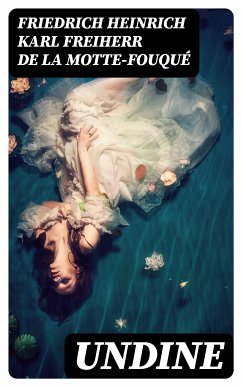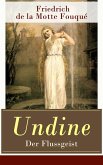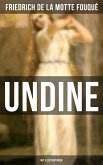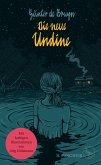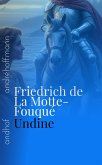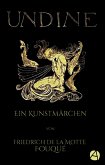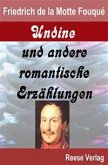Friedrich Heinrich Karl Freiherr de La Motte-Fouqué's "Undine" is a seminal work in German Romantic literature that intricately weaves themes of love, sacrifice, and the clash between the ethereal and the earthly. Written in 1811, this novella showcases the enchanting tale of a water nymph who yearns for a human soul, encapsulating a lush, poetic style dense with allegorical significance. De La Motte-Fouqué masterfully blends elements of folklore with rich, emotive prose, creating a story that resonates with medieval legend while exploring philosophical questions of identity and existential longing, thus firmly placing it in the context of Romanticism's quest for beauty and deeper truth in human experience. The author's background as a member of the German nobility and his exposure to the vibrant literary movements around him significantly influenced his creative endeavors. De La Motte-Fouqué, who traversed various European cultures and resonant mythologies, imbued "Undine" with a deep understanding of human emotions and a yearning for transcendence. His personal experiences with love, loss, and spirituality inform the novella's intricate psychological landscape. Readers are encouraged to immerse themselves in "Undine," as it invites contemplation on the nature of love and the essence of the soul. This enchanting tale not only captivates with its mesmerizing narrative but also enriches the mind, making it a profound addition to any literary collection, promising to resonate long after the final page is turned.
Dieser Download kann aus rechtlichen Gründen nur mit Rechnungsadresse in A, B, BG, CY, CZ, D, DK, EW, E, FIN, F, GR, H, IRL, I, LT, L, LR, M, NL, PL, P, R, S, SLO, SK ausgeliefert werden.

